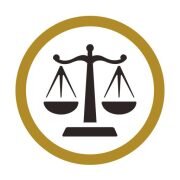Best International Trade Law Lawyers in Durban
Share your needs with us, get contacted by law firms.
Free. Takes 2 min.
List of the best lawyers in Durban, South Africa
South Africa International Trade Law Legal Articles
Browse our 2 legal articles about International Trade Law in South Africa written by expert lawyers.
- Managing Import Tariffs and Customs Disputes in South Africa
- Key Takeaways Managing import tariffs and resolving customs disputes in South Africa requires strict adherence to timelines and precise commodity classification. Navigating the South African Revenue Service (SARS) framework effectively protects businesses from costly delays and penalties. You have exactly 30 days to file a Notice of Objection against a... Read more →
- Repatriating Profits: South Africa Foreign Investment Laws
- Repatriating Profits: Foreign Investment Laws in South Africa South Africa offers a sophisticated legal framework for international investors, but the movement of capital across its borders is strictly governed by the South African Reserve Bank (SARB). Navigating these regulations is essential for any foreign-owned entity looking to return profits to... Read more →
About International Trade Law in Durban, South Africa
International Trade Law in Durban, South Africa is a dynamic and evolving field that encompasses the legal framework governing trade between South Africa and other countries. Durban, with its bustling port and strategic location on the southeastern coast of Africa, plays a key role in international trade. The legal landscape in Durban is influenced by South African national laws, international treaties, and agreements that the country is part of. This includes compliance with the regulations set by the World Trade Organization (WTO), the Southern African Development Community (SADC), and bilateral trade agreements. The laws cover a variety of areas including import and export regulations, tariffs, trade disputes, and more, making legal expertise invaluable for navigating these complexities.
Why You May Need a Lawyer
Engaging a lawyer specializing in International Trade Law can be crucial for a variety of reasons. Businesses involved in import and export activities may encounter intricate legal requirements and compliance issues. Legal advice can help ensure regulations are adhered to, preventing costly penalties. Moreover, resolving trade disputes can be complex, requiring a thorough understanding of both local and international laws. Companies may also need assistance with contracts, tariffs, and customs regulations. Individuals or businesses facing investigations or sanctions may require representation and advice to safeguard their interests.
Local Laws Overview
Durban is subject to both South African national legislation and specific regional policies affecting trade. Key local laws include the Customs and Excise Act, which governs the importation and exportation of goods, as well as value-added tax regulations related to cross-border transactions. South Africa's participation in the World Trade Organization imposes adherence to international standards and dispute resolution mechanisms. Moreover, the Broad-Based Black Economic Empowerment (B-BBEE) policy may impact international businesses seeking opportunities in Durban, influencing trade partnerships and compliance requirements.
Frequently Asked Questions
1. What is International Trade Law?
International Trade Law consists of regulations and agreements that govern trade between countries. It includes treaties and laws affecting import, export, tariffs, and trade disputes.
2. How do South African trade laws affect businesses in Durban?
Businesses must comply with South African trade laws such as the Customs and Excise Act and VAT regulations, alongside international agreements like those of the WTO, to legally conduct international trade.
3. Can a lawyer help with resolving trade disputes in Durban?
Yes, a legal expert can assist in resolving trade disputes by navigating both national and international dispute resolution mechanisms to protect your interests.
4. What are the common types of trade agreements affecting Durban?
Common agreements include bilateral trade agreements between South Africa and other countries, SADC protocols, and WTO frameworks that South Africa is part of, affecting trade policies in Durban.
5. How do tariffs and duties impact international trade?
Tariffs and duties are taxes imposed on imports and exports that can affect the pricing and competitiveness of goods. Understanding these is crucial for budgetary and strategic planning.
6. What role does the port of Durban play in international trade?
The port of Durban is one of the busiest in Africa and serves as a major gateway for goods entering and leaving South Africa, significantly impacting trade logistics and legal considerations.
7. Are there specific regulations for exporting goods from Durban?
Yes, exporters must comply with both South African export regulations and the destination country's import requirements. Legal advice can ensure compliance with both sets of laws.
8. How can I verify compliance with international trade laws?
Legal experts can conduct compliance audits and provide guidance on international trade laws to ensure that your business meets all necessary legal standards.
9. Are there penalties for non-compliance with trade regulations?
Non-compliance can result in fines, trade restrictions, or sanctions, making it imperative to seek legal assistance to ensure adherence to all applicable laws.
10. What is the process for addressing a customs-related issue?
Addressing customs issues involves understanding the regulations of the Customs and Excise Act, potentially requiring negotiation with customs officials or legal representation if disputes arise.
Additional Resources
Several resources and organizations can aid in understanding and navigating International Trade Law in Durban. The International Trade Administration Commission of South Africa (ITAC) provides guidance on trade remedies and tariffs. The Department of Trade, Industry and Competition offers support for trade facilitation. Legal associations and trade law firms in Durban can also be valuable sources of information and representation.
Next Steps
If you need legal assistance in International Trade Law, the first step is to consult with a legal expert specializing in this field. Consider scheduling a consultation with an experienced attorney to discuss your specific circumstances. It can be beneficial to gather all relevant documents and information beforehand to facilitate the consultation process. Additionally, staying informed about local and international trade developments will enhance your understanding and readiness to address any legal challenges that may arise.
Lawzana helps you find the best lawyers and law firms in Durban through a curated and pre-screened list of qualified legal professionals. Our platform offers rankings and detailed profiles of attorneys and law firms, allowing you to compare based on practice areas, including International Trade Law, experience, and client feedback.
Each profile includes a description of the firm's areas of practice, client reviews, team members and partners, year of establishment, spoken languages, office locations, contact information, social media presence, and any published articles or resources. Most firms on our platform speak English and are experienced in both local and international legal matters.
Get a quote from top-rated law firms in Durban, South Africa — quickly, securely, and without unnecessary hassle.
Disclaimer:
The information provided on this page is for general informational purposes only and does not constitute legal advice. While we strive to ensure the accuracy and relevance of the content, legal information may change over time, and interpretations of the law can vary. You should always consult with a qualified legal professional for advice specific to your situation.
We disclaim all liability for actions taken or not taken based on the content of this page. If you believe any information is incorrect or outdated, please contact us, and we will review and update it where appropriate.

















